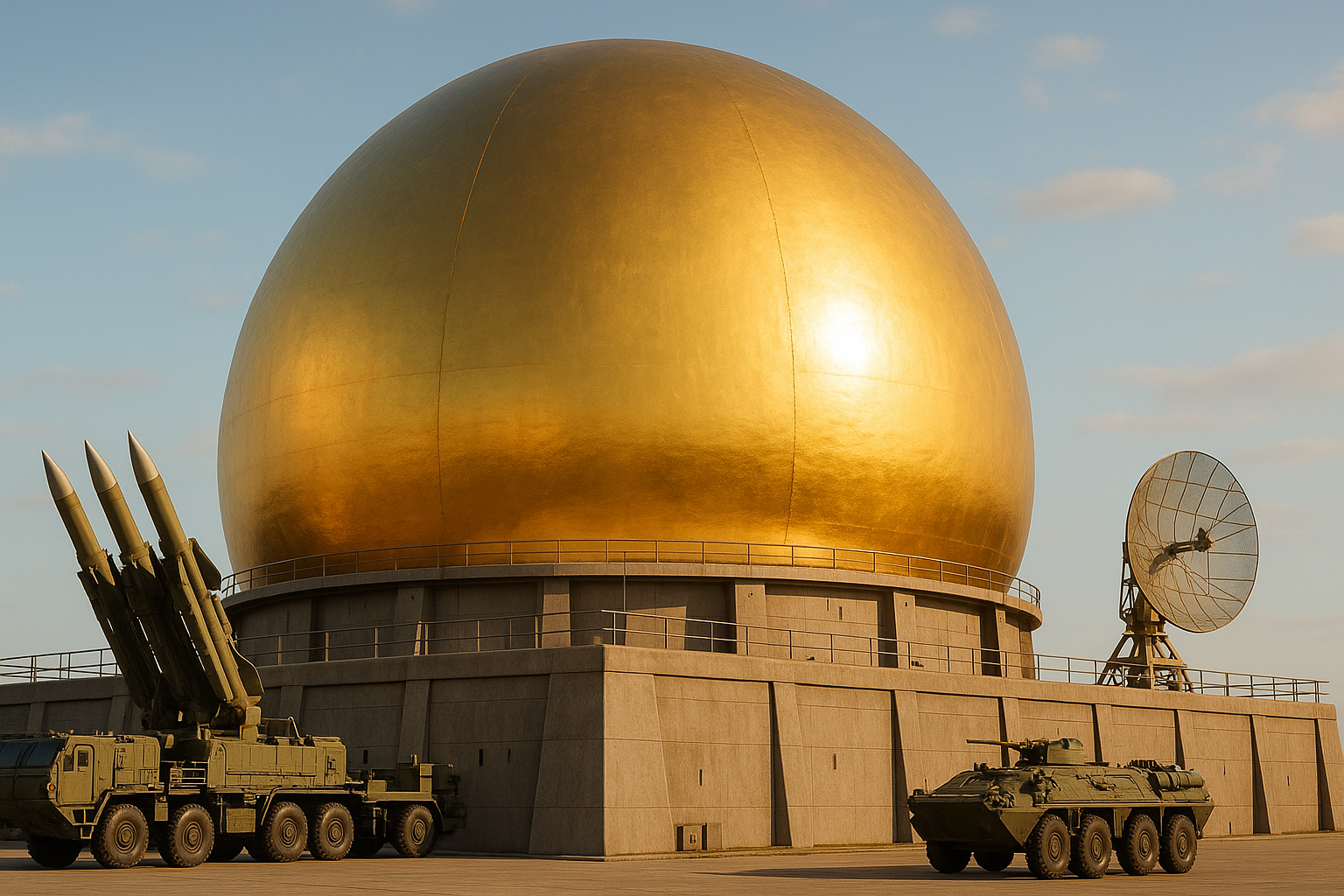Trump unveiled plans yesterday for what he's calling a "Golden Dome" missile defense system. Price tag? A jaw-dropping $175 billion. You could almost hear champagne corks popping in defense contractor boardrooms across the country.
The former president, flanked by his Defense Secretary pick Pete Hegseth (the Fox News personality with limited Pentagon experience), outlined what amounts to Reagan's "Star Wars" program on steroids. The initial $25 billion is just the appetizer—barely enough to cover the PowerPoint presentations that will explain why they need the remaining $150 billion.
Look, I've covered defense procurement long enough to recognize the pattern. Big announcement, bigger promises, eye-watering cost estimates that inevitably prove laughably optimistic. The "Golden Dome" fits this template perfectly.
Defense stocks ticked up on the news. No surprise there. Northrop, Lockheed, Raytheon—the usual suspects all saw modest gains. Wall Street isn't exactly doing backflips, though. They've seen this movie before.
What makes defense spending so fascinating (and frustrating, if you're a budget hawk) is how it operates in its own economic universe. It's not capitalism. It's not socialism. It's something... else. Something where a 40% cost overrun is considered basically on budget.
I spoke with three defense analysts yesterday who all made the same point: timing is everything here. With election season heating up and polls showing a tight race, Trump's playing a card he knows well—go big, go gold, promise jobs in swing states. The defense industrial base didn't accidentally end up spread across every congressional district in America.
Trump's appointing Space Force General Michael Guetlein to oversee this thing. That tells you everything about the ambition—we're talking land, sea, air, and space components. A shield so comprehensive it would make Captain America jealous.
But here's the thing about missile defense systems (and I've reported on these programs since the Bush administration): they're really, really hard to get right.
Our current Ground-based Midcourse Defense has gobbled up $40+ billion since 2004. Its test record? Let's just say "mixed" is being generous. The Missile Defense Agency typically works with about $10 billion annually. Now we're talking about multiplying that several times over.
Defense contractors live by what I call the "40-40-40 rule." Projects take 40% longer than promised, cost 40% more than budgeted, and deliver 40% less capability than advertised. Do the math on the Golden Dome, and suddenly we're looking at $245 billion for a system that'll be ready sometime around... 2030? Maybe?
(The history of defense procurement is littered with programs that started out ambitious and ended up merely adequate. Anyone remember the Zumwalt destroyers? The F-35's early promises?)
For investors wondering where to place their bets—the major primes will certainly benefit, but the real winners might be smaller specialized contractors. Companies like L3Harris (which recently acquired Aerojet Rocketdyne) could see outsized gains if they land key components.
The branding here is pure Trump. "Golden Dome" sounds like something that should be sitting atop a casino, not a sophisticated missile defense network. One source at the Pentagon—who asked not to be named because they weren't authorized to question presidential taste levels—wondered if the actual infrastructure would be painted gold.
"With this administration? I wouldn't rule it out," they told me.
Will it actually get built as promised? History suggests no. But defense executives are already adjusting their presentations to include plenty of gold in their color schemes. That's how the game works.
Meanwhile, budget hawks are having minor coronaries at the thought of another $175 billion line item on the national credit card. But in Washington's strange moral economy, defense spending somehow doesn't count as "real" spending.
I've watched this dance for years now. Big promises, bigger price tags, scaled-back delivery. Rinse and repeat.
The Golden Dome may never fully materialize as Trump envisions it. But it's already accomplished its first mission: grabbing headlines and projecting strength. In politics, sometimes that's all that matters.
